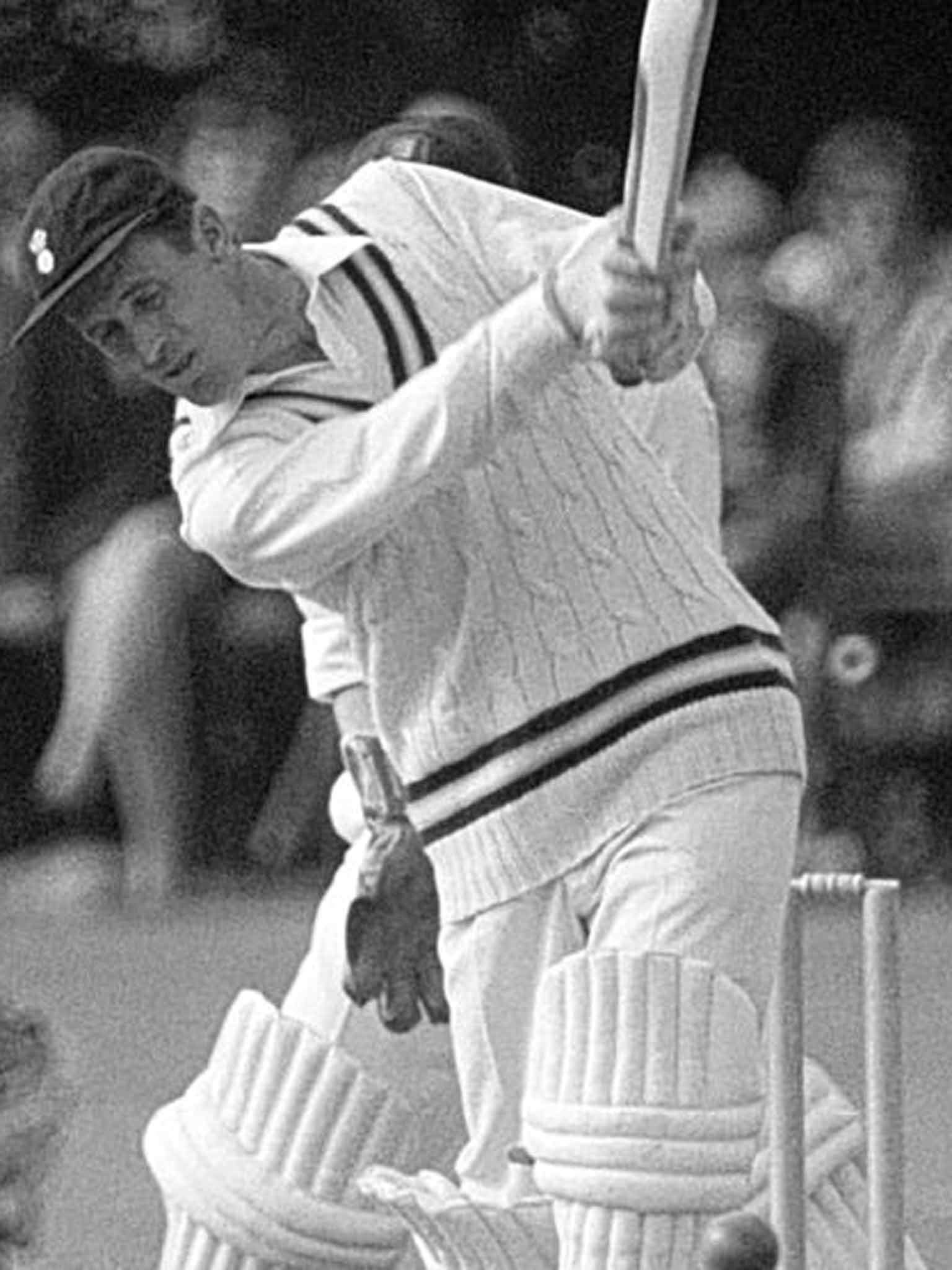Peter Sainsbury: Cricketer and coach who became the only player to feature in both Hampshire's County Championship titles

Peter Sainsbury was at the heart of Hampshire cricket, as player and coach, for almost 40 years. He alone played in both their championship-winning sides, in 1961 and 1973.
A lad from Chandler's Ford, he came on to the staff in 1950, at the age of 15, where his exceptional ability as a fielder stood out immediately. National Service in the Army delayed his progress into the first team, but he arrived with a bang in the summer of 1955. A slow left-arm bowler, he took 102 wickets, celebrating his 21st birthday by dismissing the great Len Hutton twice in a day at Bradford. An effective batsman in the middle order and a brilliant close-to-the-wicket catcher, he was selected for an England "A" tour of Pakistan that winter.
With short fingers he was not a great spinner of the ball, and in Pakistan he saw the difference in class between himself and his fellow tourist Tony Lock. He came home trying to bowl like Lock, and it did not work: "I lost what I did naturally. It took me a couple of years to get it back."
To all appearances he never again featured on the radar of the England selectors. Instead, he became the ideal county cricketer: a great team man, who mixed a quiet kindness with a determination to maintain the highest of standards. A true competitor who loved his cricket, he was always in the game.
His busy right-handed batting, working the ball cleverly and scampering singles, brought him 1,000 runs in a season six times, and his close catching was the equal of anybody in the game. He kept himself fit, and his last years as a player were as good as any. In 1971, at the age of 37, in what was now a shorter first-class season, he took 107 wickets, second only to the West Indian Lance Gibbs. In 1973, when Hampshire won the championship, he was second in the national bowling averages; in 1976, his last year, fourth. There were still runs and catches, too.
He was a popular and successful county coach, though he never quite came to terms with the idea that he could help the great West Indian fast bowler Malcolm Marshall. "I'd ask him, 'Why do you think you're not getting any wickets, Maco?' And I'd let him tell me."
His great ambition, to play for England, remained unfulfilled. Several times his fielding saw him selected as 12th man, but to his disappointment he was never required. "The closest I got was the time I thought Ted Dexter was waving for a hat. I ran out with it. 'What are you doing out here?' he said. 'No, I don't want a bloody hat. Get off.'"
In 2004 a letter came into my possession. Written from Sydney in the early stages of England's tour of Australia in 1958-59, it revealed that one evening they decided to send for another slow bowler and opted for Sainsbury. The next morning, however, they changed their mind and sent for John Mortimore. I showed it to the long-retired Sainsbury, and his reaction was typical of his good-humoured modesty. "To think I got that close," he said. "Between going to bed and getting up. I'd like a copy of that letter for the family. You've made my life!"
Peter James Sainsbury, cricketer and coach: born Chandlers Ford, Hampshire 13 June 1934; married Joyce (one son, one daughter); died Southampton 12 July 2014.
Join our commenting forum
Join thought-provoking conversations, follow other Independent readers and see their replies
Comments
Bookmark popover
Removed from bookmarks